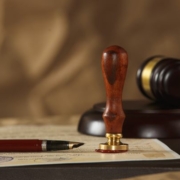What Does Advance Directive Mean?
At certain stages of life, whether due to aging, illness, debilitation, or accidents, the capacity to manage affairs may be lost. Understanding this reality and planning before a medical crisis strikes is essential.
You can begin estate planning and have critical documents in place, such as an advance health care directive. Proper planning ensures care and treatment follow your wishes.
What Happens Without an Advance Directive?
Kevin stands at the door of Winnie’s nursing home room, tears streaming down his face. The medical staff just finished inserted a feeding tube into Winnie – an act Kevin knew she didn’t want. Unfortunately, Winnie couldn’t express her wishes due to advanced dementia, and she had no legal documents that expressed her wishes not to be fed by artificial means. Kevin had no choice but to sit back and watch his wife go through a procedure that would unnecessarily prolong her suffering.
Kevin and Winnie could have avoided this situation with an advance directive, a collection of documents, including a:
- Living will (decisions you make about end-of-life treatment and care)
- Health care power of attorney (proxy or surrogate)
- HIPAA release form (medical history)
The purpose of this set of documents is to give you control over what happens when you can’t speak for yourself. If certain criteria are met, your doctors must consult with your advance directive and health care power of attorney before making decisions about life-sustaining treatment.
Situations Triggering Your Advance Directive
Usually, two doctors agree on a diagnosis when a person is terminally ill, permanently unconscious, or at the end-stage of life. Once that happens, and the individual can’t express their preferences, doctors turn to the advance directive to figure out the best course of action.
Medical staff are required to prolong life at all costs, which often leads to artificial hydration, feeding, and breathing tubes regardless of your outlook for recovery. Discussions with family members may raise more questions than answers without a written plan. Your loved ones may agonize over difficult decisions, wondering what you truly wanted.
A Living Will
A living will determines what happens to you in a medical emergency, unlike a Last Will and Testament, which determines what happens to money and possessions after death. A living will describes what health care providers can and can’t do to prolong your life or ease your pain when you can’t express decisions yourself. For example:
- Do you want to be placed on a ventilator if you can’t breathe on your own?
- Do you want a feeding tube and IVs set up, and if so, for how long?
- Do you want to be an organ or tissue donor?
A Health Care Power of Attorney
A health care power of attorney may also be called a health care proxy or surrogate. It lets you choose someone to make health care decisions for you. They must follow instructions in your living will, and can make decisions not explicitly stated by your living will, based on medical history (if they are listed on a HIPAA release) and facts of the situation. In most states, default surrogate consent laws may allow family members to make treatment decisions on your behalf, but who is chosen and what they decide may not follow your wishes.
Other documents you may include in your advance directive are Do Not Resuscitate (DNR) orders and Physician Orders for Life-Sustaining Treatment (POLST), among others. You might also consider decisions in a mental health crisis.
This is a difficult subject to discuss with loved ones. But nearly 70 percent of Americans don’t have plans in place for a worst-case scenario, leaving others to choose for them. It may not align with their thoughts or beliefs about end-of-life care.
If you or a loved one would like more information about advance directives, please don’t hesitate to reach out to our estate planning law firm today. We are dedicated to preparing individuals and families for life’s challenges.
Contact our Ruston, LA office by calling us at (318) 255-1760 today and schedule an appointment to discuss how we can help you with your planning.










